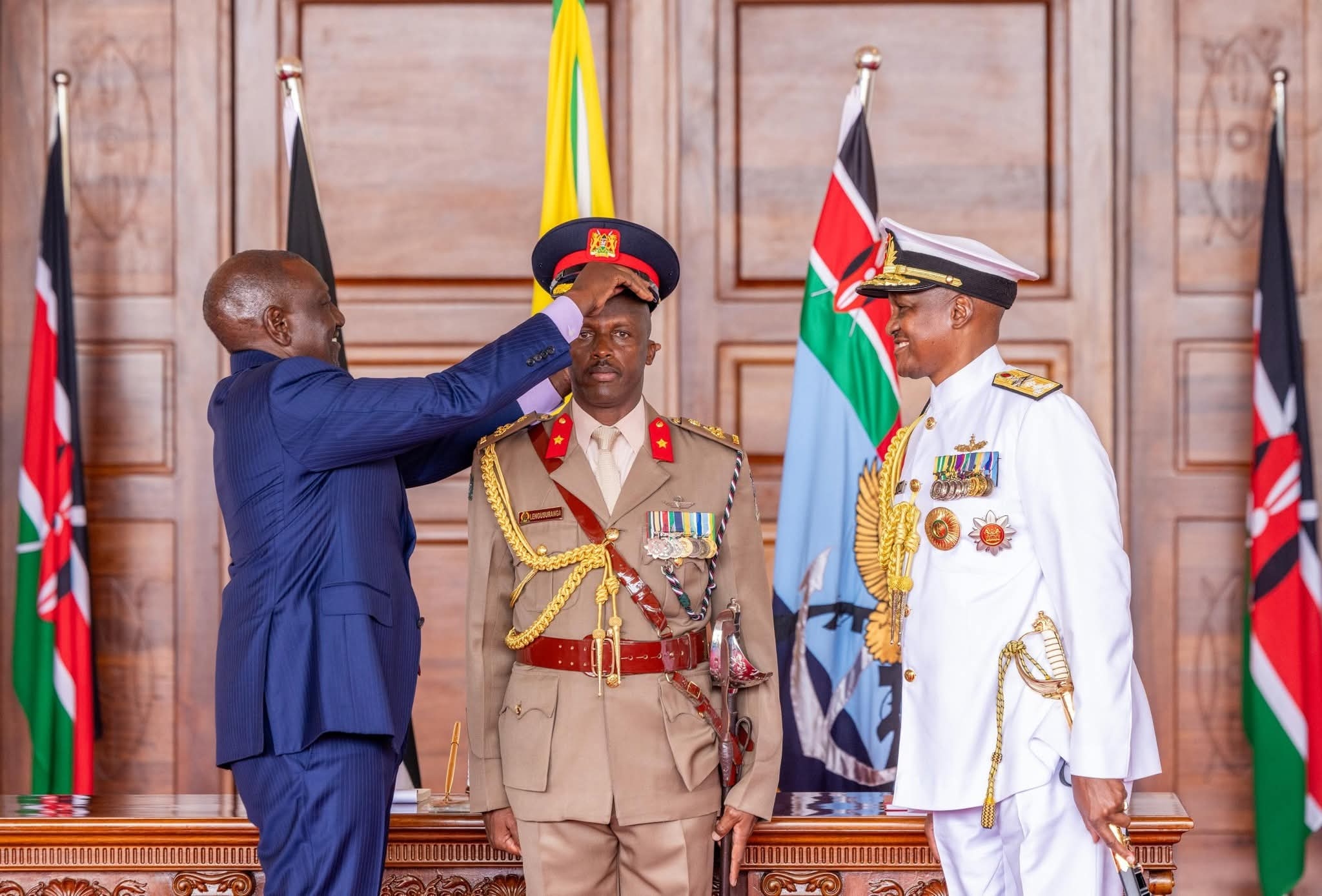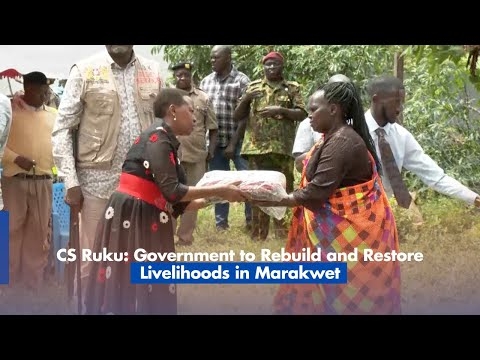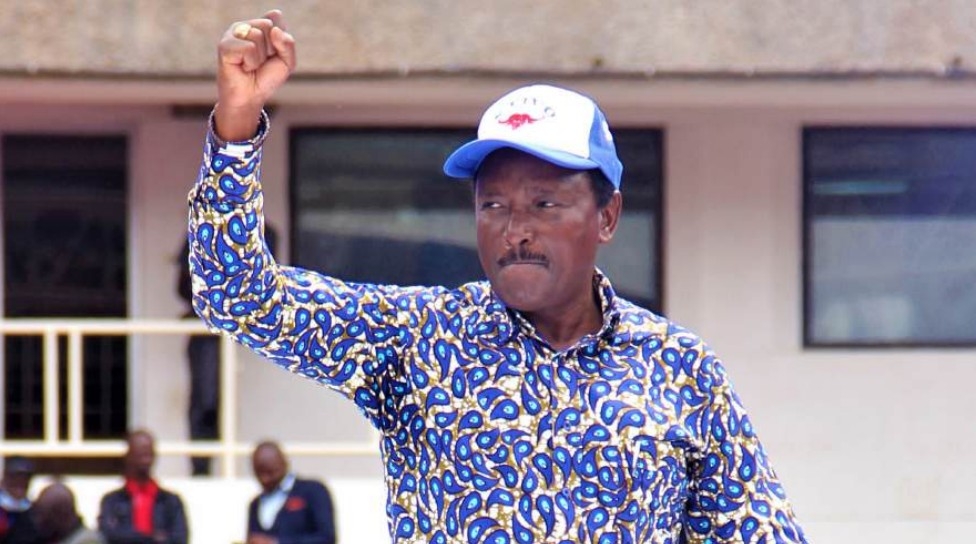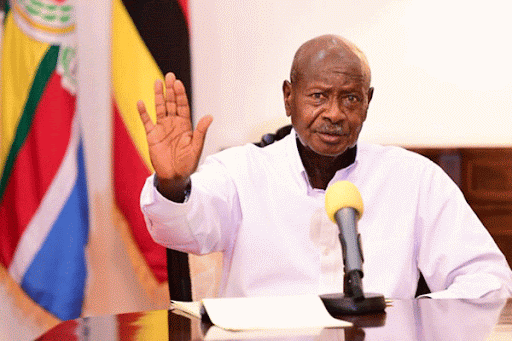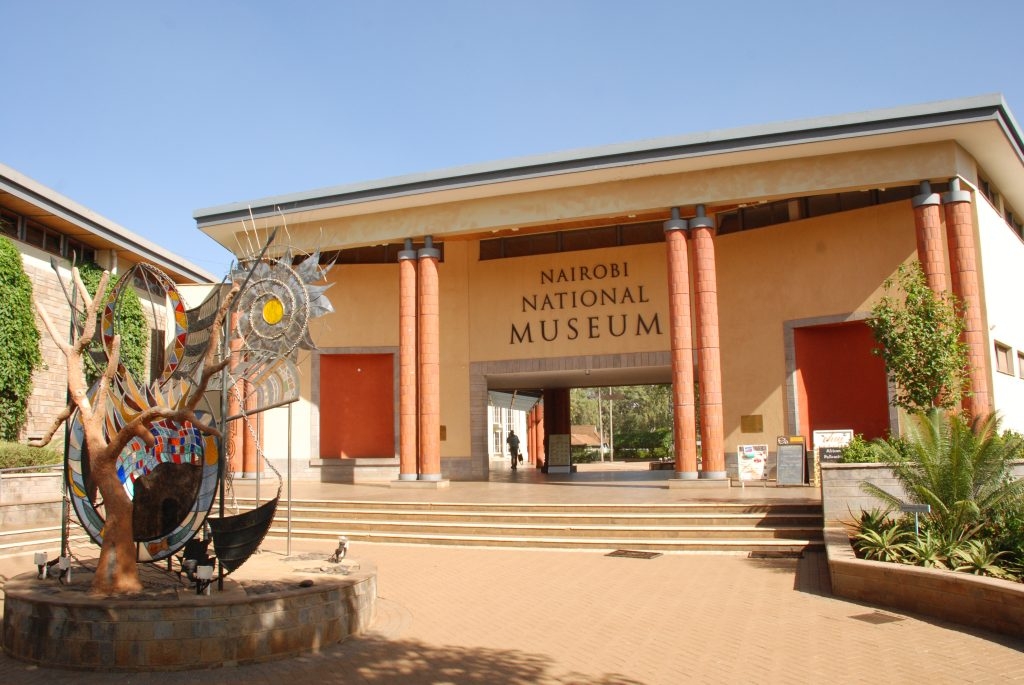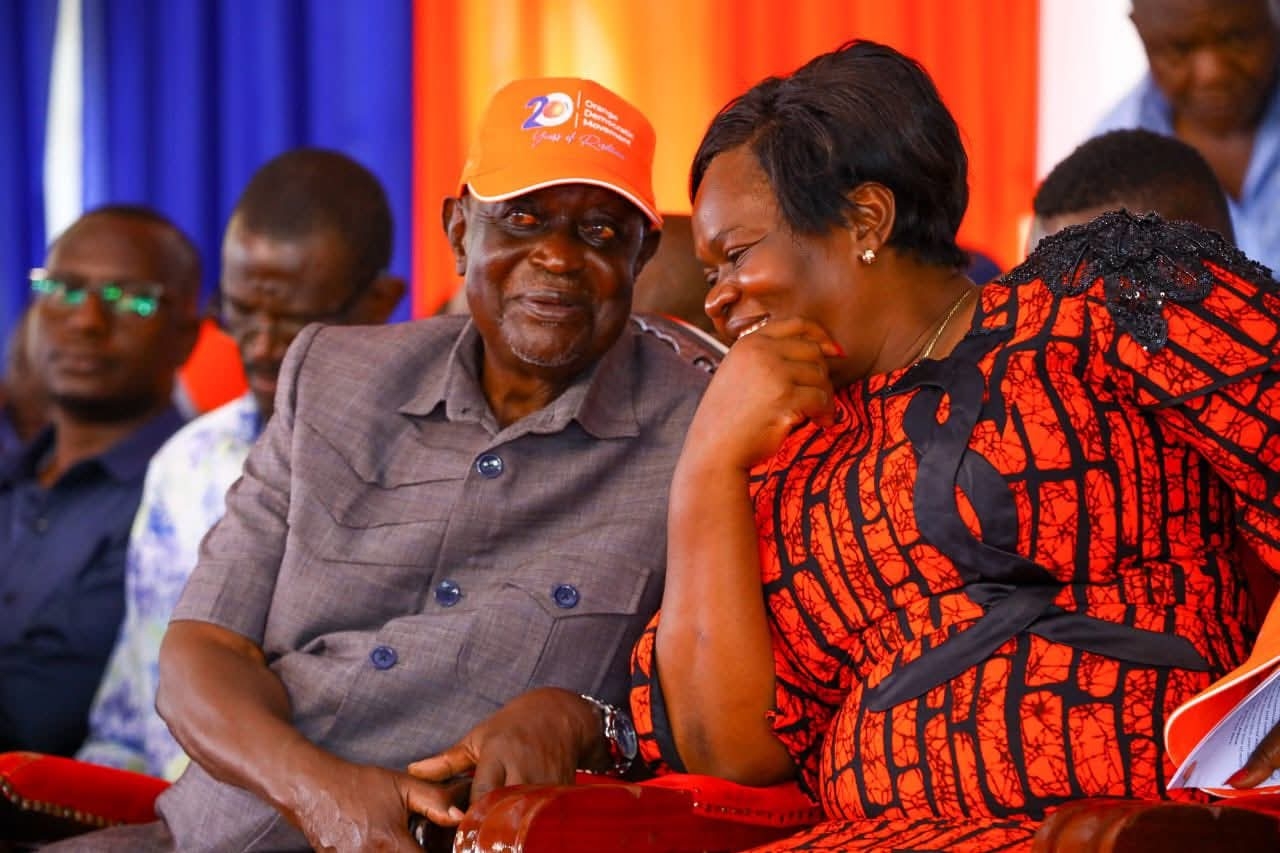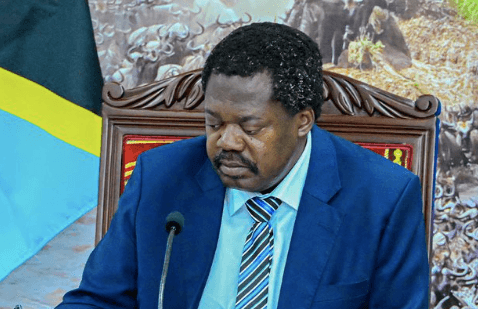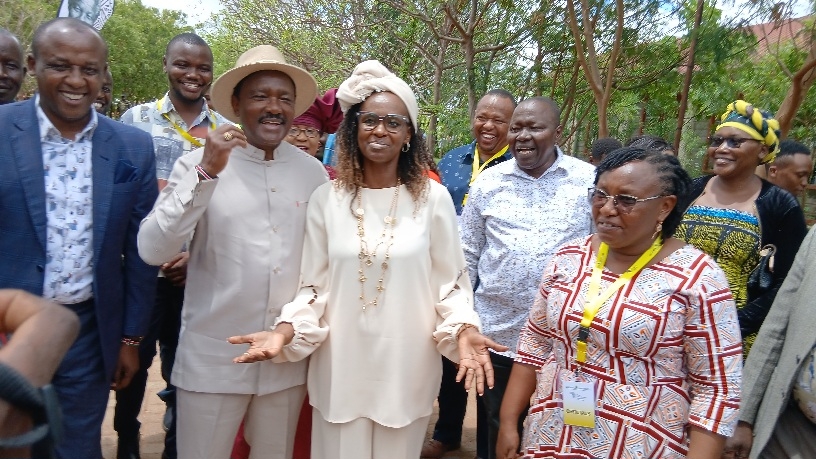
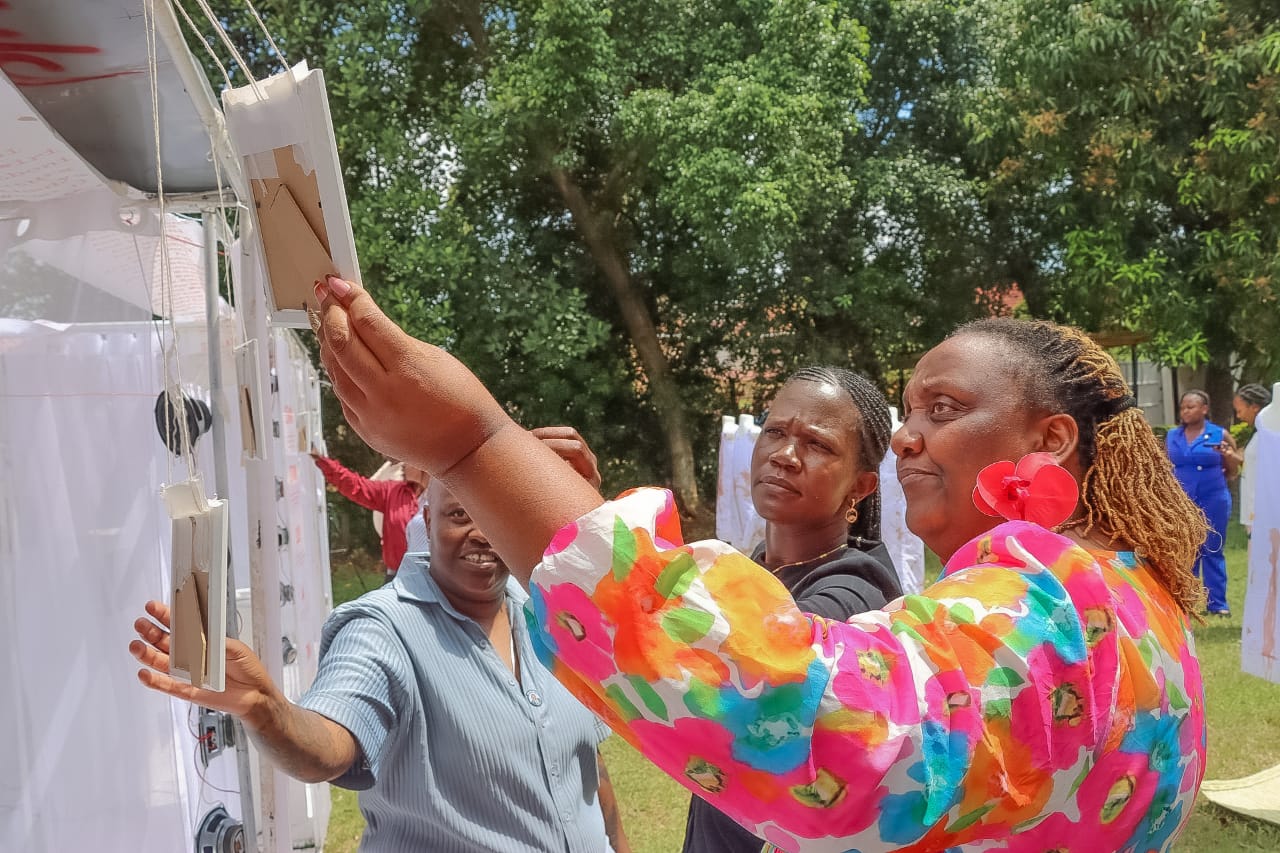 Njeri Migwi of Usikimye, Kisumu County CEC Arts and Culture Beatrice Odongo and Multidisciplinary artist Thayu Kilili during the Maskan exhibition in Kisumu/ Faith Matete
Njeri Migwi of Usikimye, Kisumu County CEC Arts and Culture Beatrice Odongo and Multidisciplinary artist Thayu Kilili during the Maskan exhibition in Kisumu/ Faith Matete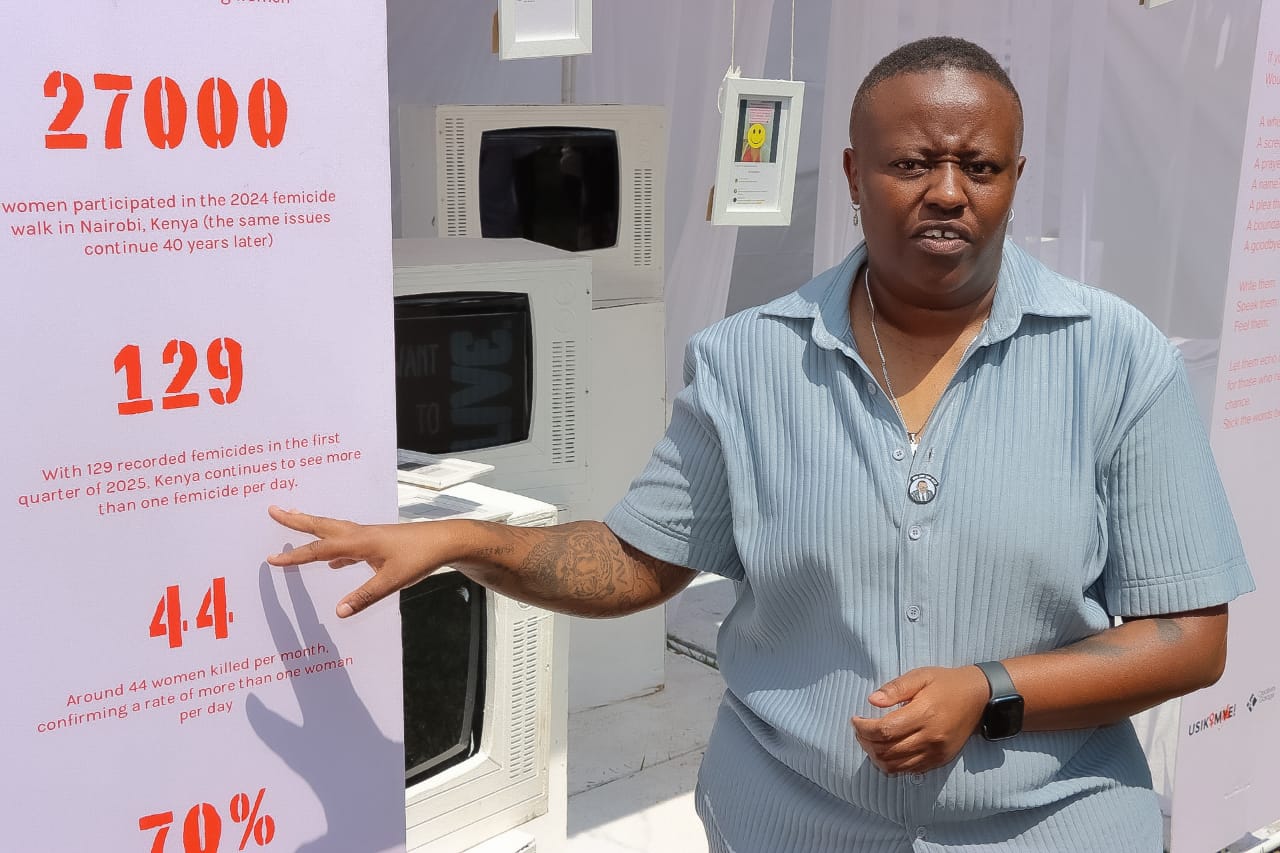
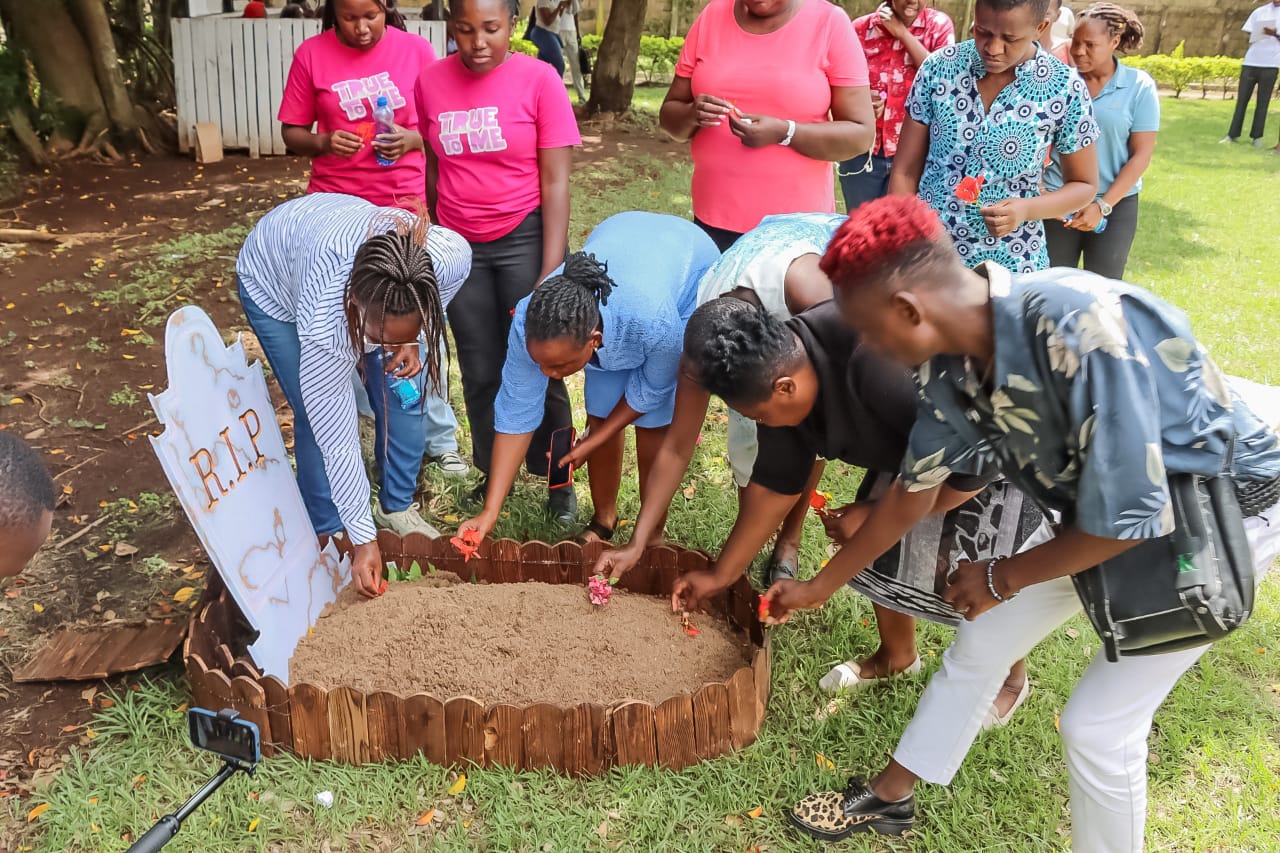 Unveiling of Maskan, an art exhibition held in Kisumu aimed at sparking conversation and inspiring community action against femicide and GBV /Faith Matete
Unveiling of Maskan, an art exhibition held in Kisumu aimed at sparking conversation and inspiring community action against femicide and GBV /Faith Matete In Kisumu, brushes, colours and verses have become weapons in the fight against gender-based violence and femicide.
Artists, gender activists and county officials have joined forces to use art as a form of resistance and healing, unveiling Maskan—a deeply evocative exhibition curated in partnership with Usikimye and Creative Garage.
The exhibition transforms grief and outrage into expression, featuring paintings, poetry and installations that confront the haunting reality of lives lost to femicide across Kenya.
“This exhibition speaks to what we experience every day — cases that often end in femicide,” said Njeri Migwi of Usikimye during the launch.
“Many people don’t even understand that the killing of women is called femicide. From this single discussion, I learned about at least seven women killed within a month in Kisumu alone.”
Migwi said the numbers tell only part of the story. In most cases, she noted, go unreported or forgotten, leaving families in silence. She hopes Maskan will give this violence a name—and a face—while sparking conversations that lead to justice.
“We want people to understand it, to report it, to act. Art lets us express anger, pain and mourning that words alone cannot carry,” she said, adding that the exhibition will tour other hotspots, including Nakuru and Mombasa.
For multidisciplinary artist and co-curator Thayu Kilili, Maskan was born out of frustration—a refusal to let society move on too quickly from tragedy.
“Whenever there’s a femicide case in the news, it trends for a day before another story replaces it,” Kilili said.
“Art helps people pause, reflect and feel. Our role as artists is to disturb — to make people uncomfortable enough to think and act.”
After drawing over 1,300 visitors in Nairobi, the exhibition now travels to counties with high femicide rates, amplifying local voices and building solidarity among survivors and their communities.
Kisumu executive for Sports, Culture, Gender and Youth Affairs, Beatrice Odongo, pledged county support for creative initiatives that challenge gender violence and promote safe spaces.
“Gender justice is the foundation of safety. We must ensure that every woman, man, girl and boy in Kisumu lives free from fear and harm,” Odongo said.
“Ending GBV requires collective action—not just awareness, but transformation.”
She urged communities to embrace art, culture and sport as tools for healing and education. “Through music, poetry and dance, survivors can transform pain into purpose,” she said.
Odongo highlighted ongoing efforts such as survivor-centred care at Jaramogi Oginga Odinga Teaching and Referral Hospital and Gita Hospital, as well as male engagement and community dialogue programmes designed to tackle GBV from all fronts.
For its creators, Maskan is more than an exhibition—it is a movement where art meets activism.
“Every installation, every painting tells a story that cannot be ignored,” Migwi said.
“Art helps us process pain collectively—to see, to feel, and to act.”
As the exhibition embarks on its national tour, Kisumu joins other counties in using creativity to confront gender-based violence.
Maskan stands as a powerful reminder that the fight against GBV is not only about punishment—it is also about healing, justice and restoring dignity to survivors.


